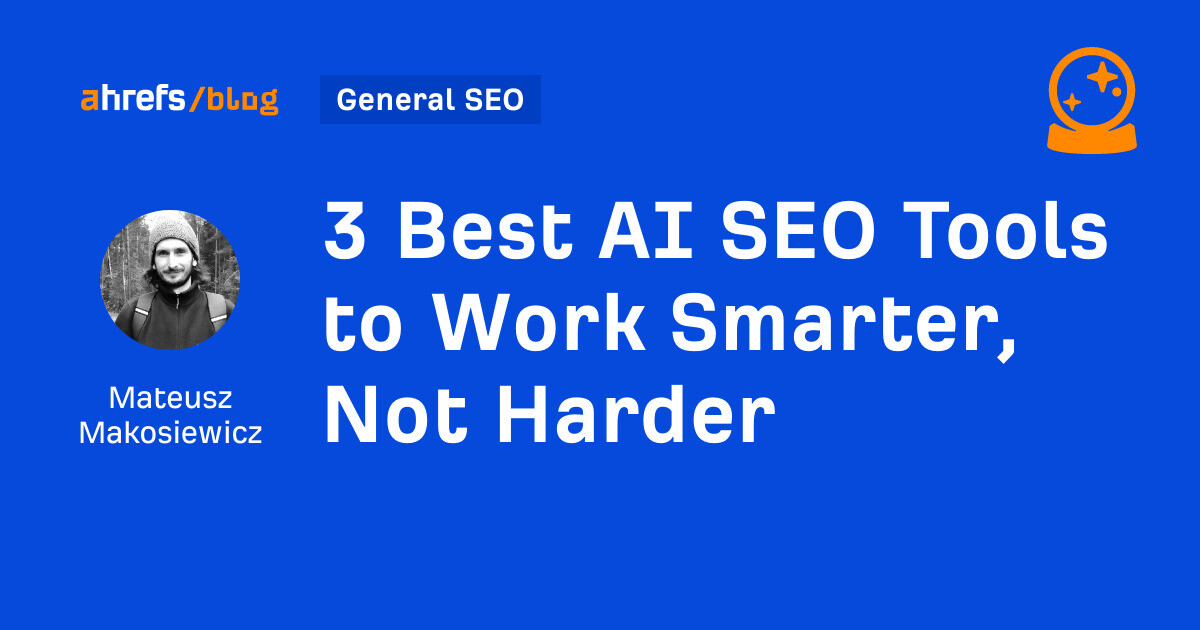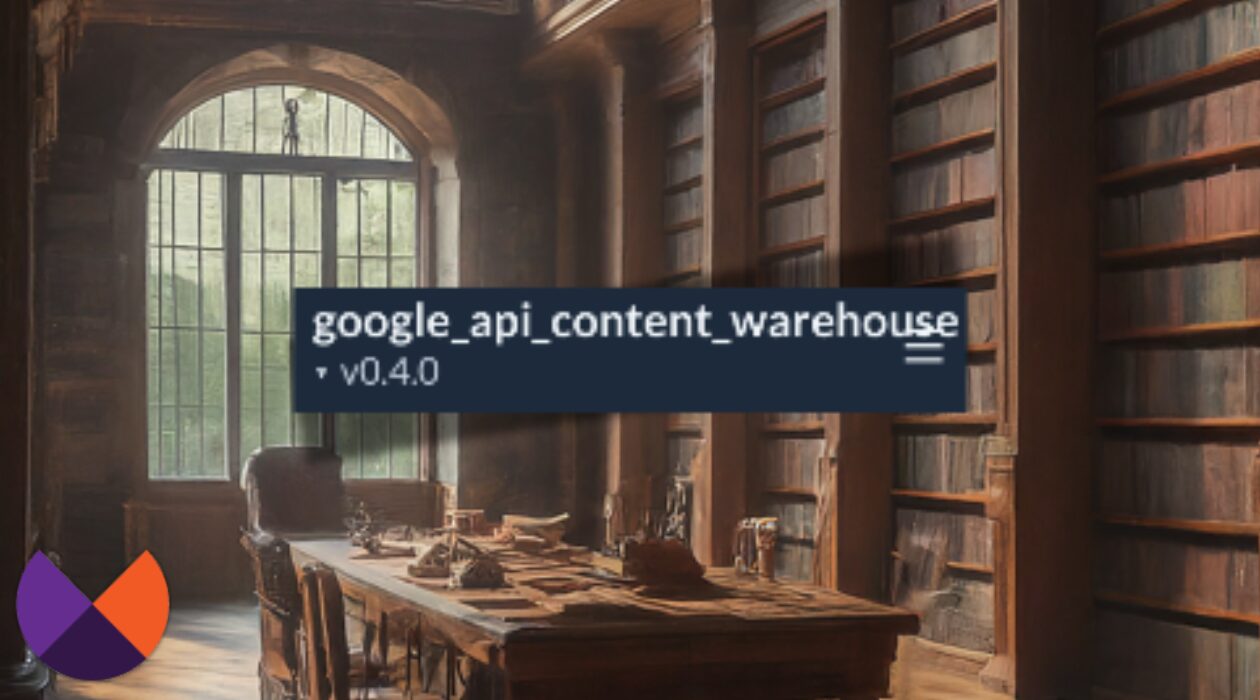
Well this has been an interesting week. Rand Fishkin published a fascinating article about a set of documents that was shared with him. These documents contain the documentation for making API calls to Google’s Cloud Content Warehouse. There is speculation, for good reason, that this documentation can help us learn a significant amount about Google’s Search systems.

Here are the documents:
There is also a version 5.0 that is much shorter.
There’s some mystery surrounding this story. Here’s the video from the person who contacted Rand. Here is Mike King’s article with his thoughts on what we can learn from these documents. Every SEO should read this.
I have a lot of questions about these files, and believe there is so much we can learn. I’m going to learn a little each day and publish a series of blog posts as I dig in.
These aren’t ranking algorithms. Yet, we may be able to learn about ranking by studying them.
The files contain two lists. One contains Attributes. And boy are there some interesting ones. We will delve deeper (ahahaha…it’s me, really, not AI) into these in the days to come, but first we need to understand what these even are and then speculate on how, or even if they are used in ranking.
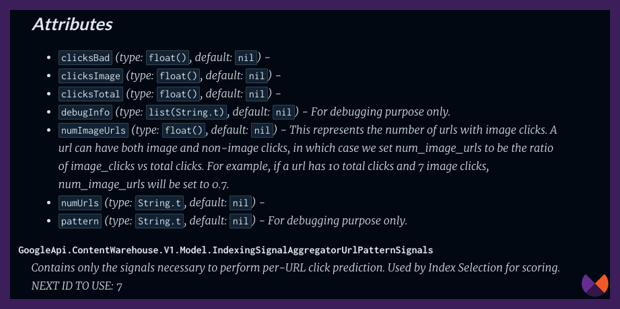
The second list of documents contains information on what looks like thousands of modules. They give instructions that help developers connect with specific API’s, Application Programming Interfaces on Google’s Cloud Platform.
Google’s Cloud Platform is a suite of services that allow businesses to use Google’s infrastructure and machine learning ******.
The files are called Google_API_Content_Warehouse.
so I Googled contentwarehouse and found this documentation. The contentwarehouse is a warehouse of documents developers use to connect with Google’s AI.
This leads us to an important conclusion, and perhaps a good place to end this first part of our investigation:
These documents are not code that is used in Google’s systems. They are documents to help developers who are building with Google’s AI on the Cloud Platform.
Yet, I still think they are worth us spending more time on.
Why I think these documents are important to study
In April of 2024 at Google’s Cloud Next Keynote, they announced that businesses can now build more things on Google’s AI technology with confidence and with more accuracy. Tools built to use Gemini can now be grounded in Google Search. This is important because grounding is what makes AI less likely to confabulate information.
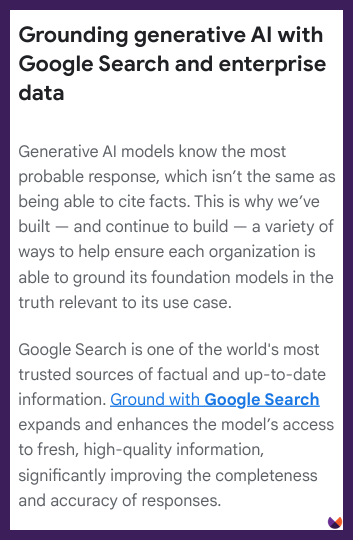
A business can now use Google’s Cloud Platform to develop with Gemini and create products that are grounded in their data and also in Search.
Which brings us to the question that I hope to answer by the end of this series:
Are the attributes that are mentioned in these API files attributes that are used in Google’s search ranking algorithms? And if so, what do we do with this information?
My belief is that the attributes are all things that can be used in Google’s calculations. Ranking is about using math to make predictions on what is likely to be helpful to the searcher. It started with PageRank and Google has learned over time to use more signals than links, and do more calculations with machine learning algorithms. These machine learning systems adjust how much weight they give to each of the signals (attributes?) they use as they learn.
I do think that studying the attributes can help us learn more. There are some mentioned that are related to NavBoost including navquery which uses Navboost query data. In fact, there are likely several blog posts in just looking at the Navboost mentions alone! Clicks, including badClicks are mentioned. There’s PagerankWeight – “the weight to be stored in linkmaps for pageranker.” There’s AnchorSpamPenalizer !?! And there’s interesting stuff about the quality raters:
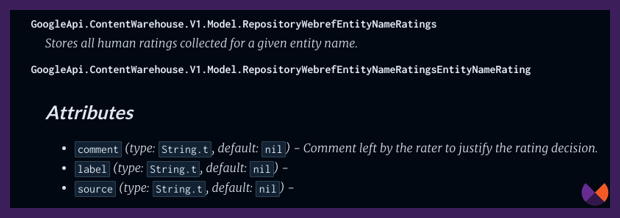
Here is the second post in this series:
What are attributes? Digging into the Google API docs
Marie
(follow along as I document everything I find interesting and important on this and other topics related to ranking and AI in Marie’s Notes.)
Join my community, stay up to ****, and get excited about the future of AI in the Search Bar.
Brainstorm with Marie
